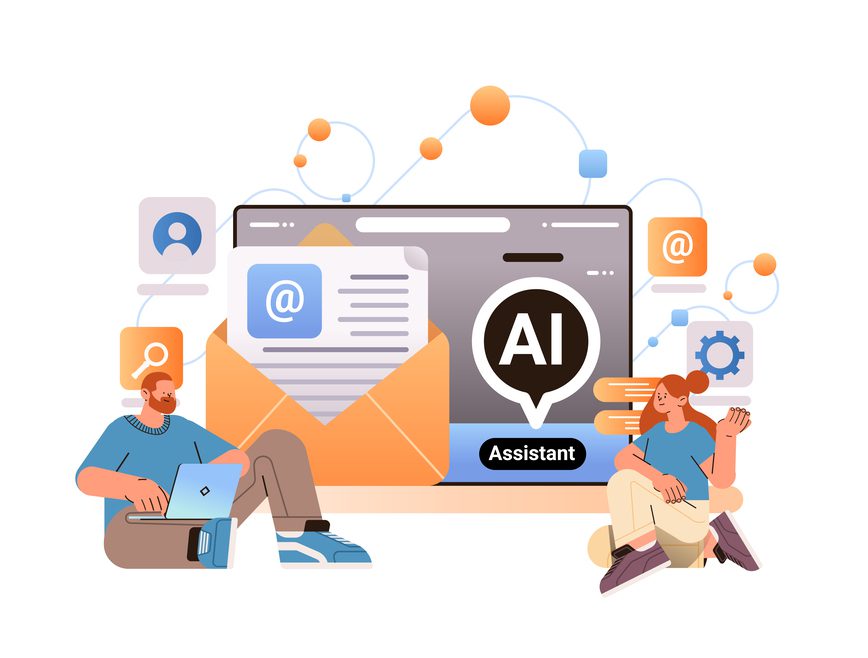Artificial Intelligence (AI) is revolutionizing multiple industries, and the entertainment sector is no exception. From content creation to audience engagement, AI’s growing role is transforming how media is produced, consumed, and recommended. This blog explores AI’s impact on entertainment, focusing on content creation, audience interaction, personalized recommendations, and the challenges that come with adopting AI.
AI in Content Creation
AI has significantly transformed content creation by automating and enhancing various creative processes:
-
- AI-Generated Scripts: Programs like OpenAI’s GPT-3 can write movie scripts, TV shows, and video game plots by analyzing vast datasets of previous scripts. For example, Warner Bros. uses AI to create trailers that are tailored to audience preferences.
- Music Composition: AI tools like Amper Music and Jukedeck allow users to generate music by selecting parameters such as mood and genre. This AI-generated music is often used in commercials, films, and digital content.
- Visual Effects (VFX): AI is used in visual effects to reduce production time and costs. Disney, for example, employs AI to enhance CGI and create realistic visuals, contributing to their cinematic magic.
Personalized Recommendations
AI’s ability to personalize recommendations is a game-changer for media consumption. It helps users discover content tailored to their tastes.
-
- Streaming Platforms: Platforms like Netflix and Spotify use AI-driven algorithms to recommend content based on users’ viewing or listening habits. Netflix attributes much of its growth to this system, which enhances user engagement by delivering highly targeted content.
- Dynamic Content Curation: AI enables real-time content updates based on user interactions. Spotify’s Discover Weekly playlist is a prime example of AI-based content personalization, keeping users engaged with new, tailored music recommendations.
Audience Analytics
AI plays a vital role in understanding audience behavior through data analysis, helping content creators optimize their offerings.
-
- Data-Driven Decisions: AI analyzes massive amounts of data from social media, video platforms, and audience feedback to uncover trends, enabling content creators to make more informed decisions on what resonates with viewers.
- Predictive Analytics: AI can predict audience reactions to content, guiding studios on which projects to greenlight and how to allocate resources effectively, thereby minimizing risks and enhancing the likelihood of success.
Interactive and Immersive Experiences
AI is enhancing immersive entertainment experiences through technologies like Virtual Reality (VR) and Augmented Reality (AR).
-
- Virtual Reality (VR): AI helps create realistic virtual environments in gaming and entertainment by generating lifelike landscapes, characters, and interactions that enhance user immersion.
- Augmented Reality (AR): AI-powered AR applications overlay digital information onto the real world, providing interactive experiences. For instance, during live concerts or sports events, AR can offer additional context and visuals to enhance viewer engagement.
Case Studies
Several entertainment companies have successfully implemented AI to engage their audiences:
-
- Netflix: AI powers Netflix’s recommendation engine, personalized thumbnails, and optimized streaming quality, playing a crucial role in its global success.
- Disney: AI aids Disney in rendering high-quality visuals, optimizing marketing strategies, and personalizing experiences in their theme parks. AI’s role in delivering tailored experiences has significantly enhanced audience satisfaction.
Challenges and Considerations
-
- Ethical Concerns: The use of AI in content creation raises questions about the role of human creativity and potential bias in algorithms. As AI takes on more creative tasks, it’s essential to address these ethical considerations to ensure responsible use.
- Data Privacy: Collecting and analyzing audience data presents privacy concerns. Entertainment companies must comply with data protection regulations and be transparent about how they handle user data.
Future Outlook
-
- AI-Driven Creativity: In the future, AI will increasingly collaborate with human creators, enhancing the creative process rather than replacing it.
- Advanced Personalization: AI will continue to improve, delivering even more precise content recommendations based on user preferences, keeping audiences highly engaged.
- Integration with Emerging Technologies: AI’s integration with technologies like blockchain will enhance transparency in content distribution and secure revenue generation.
Conclusion
AI is shaping the future of entertainment, from content creation to personalized audience engagement. As AI continues to evolve, it presents exciting opportunities for innovation in the entertainment industry. At vNex, we offer cutting-edge AI solutions designed to help entertainment companies thrive. Discover how vNex can empower your business with the latest AI technologies, opening up a world of new opportunities for engaging your audience.





















